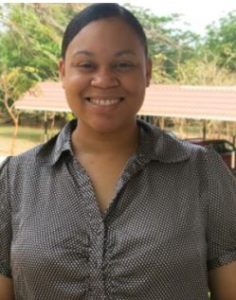The first World Bicycle Day will be celebrated on June 3rd with a series of events at the UN in New York as well as local events around the world. The UN adopted the resolution describing the bicycle as “simple, affordable, reliable, clean and environmentally fit sustainable means of transportation, fostering environmental stewardship and health. The resolution also recognized that “the bicycle can serve as a tool for development”. The day was initiated to recognize the important role of cycling as a sustainable and empowering mode of transportation as well as a component of international development and economic growth.
While cities such as Copenhagen and Amsterdam are regularly recognized as cycling capitols of the world, public bicycle systems have been introduced in Morocco, Mexico and Kenya. Infrastructure for cycling has become an increasingly important factor in improving the quality of life for urban centers. While often underestimated, the economic return on investment in terms of reducing congestion, increasing productivity and public health benefits can result in six times ROI on initial construction cost using the example of Mexico City’s Ecobici initiative
The Genesis
Rwanda as a developing country, values the importance of cycling as a means of transport that is simple, affordable, and environmentally fit. This wouldn’t be news for many but being “Reliable” in this new era can be a turning point for this mode of transport considering the need to improve the quality of life for urban centers because when we talk about reliability we are looking at an urban setting that guarantees connectivity of places, attractive, affordable, safe and convenient in meeting day to day trips as much as other modes of transport have made it significant.
“Early 2017, is when I swiftly picked interest in the Bicycle. It was a fresh week starting a new job assignment that required me to work in one of Rwanda’s secondary cities, these are cities growing to become poles of economic growth. This city Is called Musanze, which is Rwanda’s most mountainous District, known for being a home to Rwanda’s Mountain Gorillas and the most popular touristic destination in the country. The first impression upon arrival in the city is a cold breeze that welcomes you with a short view of a relatively flat urban area and long scenic view of the Volcanoes and Gorilla Mountains across the Horizon of the city.”
“As my duties in the District commenced in Feb of 2017, I started to observe that cycling in Musanze city was one of the major means to move around the city not only for the less privileged but also the privileged (I mean those that can afford to access other means of transport). With my directive being to mainstream green growth into the district, I started to think multi-modal mobility would be an ideal option for the city because the locals loved it and the weather was conducive to practice cycling. Suddenly I started picking interest in the bicycle regardless of my position at work I felt it would be suitable, fun, and safe to ride the bicycle to various places around the city. In the process I realized cycling can be a reliable mode of transport after work, fun for sports and shopping at your convenience then I started querying my colleagues if they felt the same way towards cycling and they agreed. From that point cycling was an ideal sustainable venture that had to be explored more to fit into the context of our Nation. Keeping in mind those that already use it as a taxi business venture as well.” Andrew Kabera
Transforming the interest into a potential project
“As time went by I started thinking of it as a potential project that would benefit the entire city and make ends meet for many just like it had for me. Thanks to the internet, I searched for information regarding community bicycle sharing and to my surprise initiatives and pilot projects had already been put in place world-wide dubbed Public Bike Share and all this made the vision clearer driving the interest deeper to bring it to pass in my Country. The research continued, and I came to realize even the Government of Rwanda had carried out studies and reports to promote cycling as a way to mitigate the rise of air pollution from vehicles and a means to access sports, health and education among others ‘ said Andrew. All this in short with combined forces, has led to a metamorphosis of what was originally an interest to a secondary city Public Bicycle Sharing (PBS) system that is in its initial pilot stages with and under the support of the Global Green Growth Institute (GGGI)
A Green Growth vision for Rwanda
In Rwanda, the main contributors to air pollution are vehicular emissions and cooking using charcoal and firewood. Over half of the cars in Rwanda were made before 1999 with an average age of 19 years. Today the Government of Rwanda and World Bank are working on a project named the Rwanda Urban Development Project (RUDP) which supports the urbanization sector through targeted infrastructure development and capacity development for strengthened local urban management. Over the course of the year the project intends to create an enabling environment for local economic development through public infrastructure improvements and provision to enhance the living conditions in the secondary cities. Under the implementation of the RUDP, over 80 Km of roads will be upgraded with bicycle lanes on the major roads of the secondary cities (Rusizi, Huye, Muhanga, Rubavu, Musanze and Nyagatare), enhancing the strategies for local economic development and providing sustainable transport system.
The Strategic Plan for the Urbanization and Rural Settlement Sector (2013-2018) outlines the overarching goals and objectives of urban development with the aim to improve Rwandans’ quality of life and develop the objectives of good development management and of spatial distribution of growth. Which was translated into a priority of “creating a hierarchical network of urban and urbanizing centers providing services and attracting economic activities countrywide, and to support the development of secondary cities, districts, towns and villages, as well as the capital city Kigali.”
In addition to sector specific plans, Rwanda’s National Strategies for Transformation have committed to achieving and integrating the global development obligations such as the Sustainable Development Goals (SDGs). Through strategic planning documents namely the District Development Strategies (DDS), GGGI Rwanda is providing technical and planning support in its elaboration among the secondary cities. At the district level, Non-motorized transport (NMT) system has taken prominence in the urban planning activities whereby, planners incorporated targets for kilometers of bicycle lanes amounting to approximately 50km as well as parking facilities for bicycles incorporated with other modes of transport.
GGGI’s Public Bicycle Sharing Pilot
The proposed PBS system was set to address six key issues: 1) increased mobility for the lowest socioeconomic strata, 2) alleviation of road congestion, 3) reduction of GHG emissions caused by motorized transport, 4) alleviation of strain on services through investing in secondary city green mobility, 5) improved air quality, and 6) encouragement of the use of PBS as an affordable means of transport. The objective of this project is to establish Rwanda’s first PBS pilot by partnering with district level officials in 1-2 secondary cities and providing a replicable model that could inform the initiation of similar pilots in other secondary cities and/or Kigali.
Through human-centered urban planning, secondary cities of Rwanda will manage to adapt to substantial, rapid population growth in the coming years. Plans to introduce more sustainable transportation practices in the secondary cities aim to address the growing national problem of emissions and worsening air quality in urban centers while improving the quality of life for Rwandans.
Authors : Mr Andrew Kabera and Michelle DeFreese – GGGI Rwanda Staff.

Mr Andrew Kabera – District Technical Assistant Musanze Secondary City

Ms Michelle DeFreese – Senior Officer with GGGI supporting the Ministry of Environment